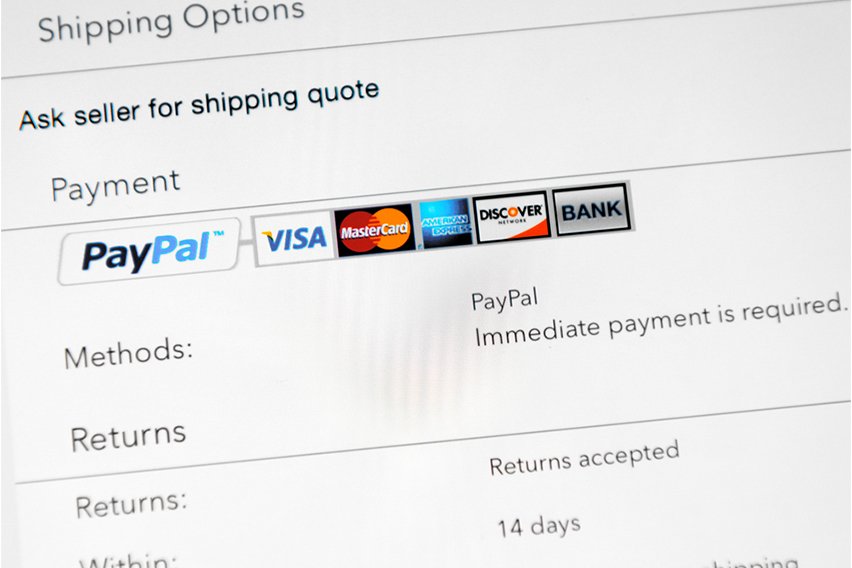Crowdfunding for Business: 12 Best Crowdfunding Sites for Startups

Many startups rely on traditional funding methods. These include bank loans, business investors, or borrowing money from friends and family. But raising money this way usually leads to racking up a huge debt and, ultimately, bankruptcy. This is where business crowdfunding comes in as an efficient way to obtain funding for your business venture.
A small business or a startup can raise funds by asking a large number of investors to donate small amounts of capital for the company’s cause. Crowdfunding is achieved through social networks, crowdfunding campaigns, and crowdfunding sites. There are also different types of crowdfunding. The most popular forms include equity crowdfunding, donation crowdfunding, and debt crowdfunding.
With hundreds of crowdfunding websites to choose from, finding one that meets your funding goal is not an easy task. That’s why we have prepared a list of the best 12 crowdfunding sites for startups.
Table of Contents
- Kickstarter
- Indiegogo
- Crowd Supply
- Crowdfunder
- Experiment
- Chuffed
- Patreon
- Fundable
- WeFunder
- SeedInvest
- Fundly
- LendingClub
- Key Takeaways
- FAQs on Crowdfunding for Small Businesses
1. Kickstarter
Kickstarter is a funding website that has helped fund over 230,000 projects, raising more than $6 billion. It’s one of the best rewards-based fundraising sites for creative projects. It funds art, comics, films, fashion, published works, games, music, etc.
In other words, you can only work with Kickstarter if you’re planning to create a project that can be shared with others.
If you meet your fundraising goal and pay Kickstarter’s platform fees, you’ll be able to get access to all your funds. However, if you don’t meet your goal, the investors will get to keep the money. This all-or-nothing approach can either work out great for the startup or it can be a big waste of time and resources.
The platform takes a 5% fee based on the funds you raise. It offers funding to startups in Australia, US, UK, Canada, New Zealand, and the Netherlands.

2. Indiegogo
Indiegogo is a crowdfunding site that has raised funds for over 800,000 projects worldwide. It launches 19,000 campaigns every month, supporting startups, non-profit organisations, and artists.
Indiegogo allows you to create a flexible fundraising campaign and better control your funds. What’s more, Indiegogo can integrate with other big platforms. This includes Google, Meta, and various social media channels.
The platform charges a 5% fee plus a third-party payment processing fee. Not only does it offer worldwide operations, but it also lets you raise money even after your fundraising campaign ends.
This funding website is the best choice for early-stage startups looking to reach a global audience.
3. Crowd Supply
Crowd Supply is a fundraising platform for hardware projects. Not only does Crowd Supply fund projects, but it also lets you use the platform to sell those products.
This crowdfunding site offers various marketing and management tools for your business venture. For example, media asset creation, campaign management, and a PR team. So, not only can use receive donation-based funding on this website, but you can also promote your products.
This crowdfunding platform is easy to set up and offers a clean, user-friendly interface. In terms of processing fees, Crowd Supply takes 5% of gross sales and 6-15% of gross sales for custom plans.
But keep in mind this platform is only for hardware projects, so it won’t benefit your startup if you belong to another industry.
4. Crowdfunder
Unlike the other services we’ve discussed so far, Crowdfunder is an app for Shopify stores. This app allows you to crowdfund directly from your website or Shopify store. Doing this saves you from redirecting your customers to another website.
The Crowdfunder app is convenient for testing a new project idea. You can also use it to collect donations for a product or offer innovative products for a limited time. Moreover, you can run more than one campaign at once and change the goal amount after launching a product. Crowdfunder is also ideal for pre-order campaigns.
The monthly subscription to Crowdfunder costs $24 a month, so it might not pay off if you don’t have a Shopify account. Note that this cost doesn’t include your Shopify subscription.
5. Experiment
Experiment is a crowdfunding site for scientific discoveries and research. It’s not a secret that scientific research requires a lot of funding. But unless it’s groundbreaking, it is usually not interesting to investors.
Just like Kickstarter, Experiment is an all-or-nothing rewards program. With over 52,000 backers, Experiment has funded over a thousand projects in different fields. The backers directly fund the project scientists, so there are no overhead costs.
You can browse through several categories. For example, biology, chemistry, social sciences, medicine, ecology, engineering, and education. Therefore, Experiment is a great alternative to convoluted government grant programs.
Keep in mind that the platform comes with a high payment processing fee. To be more precise, Experiment keeps 8% of the money raised with an additional 3% to 5% in processing fees.
6. Chuffed
Chuffed is a non-profit charity and a social enterprise fundraising platform. It organises crowdfunding campaigns for all types of social causes. From social welfare and education to international development and the environment.
Chuffed has organised over 1,000 successful social case projects. So, if your startup is raising money for social causes, it can help you find more investors. Chuffed can also promote certain campaigns on its platform through ads on social media.
The platform also aims to reduce the processing fees and only receive optional add-on donations to fund the company itself.
Pro Tip: Even with crowdfunding, knowing how to successfully raise money for your startup can be quite a challenge. Especially if you don’t know anything about finance. If you need any help managing your company’s cash flow, FreshBooks can help with its accounting software. All you need to do is sign up for an account, and FreshBooks will take it from there.
7. Patreon
Patreon is another crowdfunding site that aims to raise money for creators. Unlike others on the list, it’s a subscription-based donation platform. Patreon helps independent artists, bloggers, writers, musicians, YouTubers, streamers, and other creative entrepreneurs.
In fact, this crowdfunding platform raised over $2 billion for creators and keeps going strong.
When you create a free account, you can offer exclusive access to your work and expand your target audience. Creators can use Patreon for podcasts, visual arts, tutorials, video content, games, and more.
Patreon even offers various integrations that you can use to promote your service. There are other fun features like sneak peeks, shout-outs, special content, and more.
Customers particularly like the fact that they can design their own subscription plan. Depending on your subscription plan, you have to pay a 5% to 12% platform fee.
8. Fundable
As part of the Startups.co platform, Fundable is an equity crowdfunding platform for startup companies. This business crowdfunding website raised more than $570 million.
It offers rewards and equity crowdfunding, depending on the capital you want to raise. Fundable’s most successful campaigns were with tech companies and high-growth companies.
However, this service comes with an expensive platform fee. To be more precise, you would have to pay $179 per month during an active campaign instead of a percentage of the funds you raised in total. You have to pay the fee whether the campaign is successful or not.
Another downside of this business crowdfunding website is that it’s only available in the US.
9. WeFunder
WeFunder is an equity and debt crowdfunding website that offers all-or-nothing funding. In other words, in exchange for their funding, investors are rewarded with equity.
If you have an equity-based business or a high-growth startup, WeFunder can help you successfully raise money for your company. With a success rate of 75%, this business crowdfunding website has invested $566 million, helping support over 2,200 founders. As a result of these donations, WeFunder has helped create 34,108 jobs at the time of writing.
Keep in mind that if you want WeFunder’s support, you need to go through various legal requirements. This platform focuses on equity-based business crowdfunding, so you have to deal with a lot of required financial disclosures. The platform fee is about 7.5% of the total transaction fees.
10. SeedInvest
SeedInvest is an equity and business crowdfunding website that aims to fund new businesses. This site helped fund over 500 startups. But what makes it different from others is that backers are the investors rather than supporters. What’s more, it offers the support of over 500,000 investors.
SeedInvest can help you raise interest in your project among venture capitalists and angel investors. Whether you own a pre-seed or early-stage business, this platform can find you the supporters you need to grow your company.
To sign up for an account, you need to fill in an application where you can explain your project idea. Afterwards, you need to wait for SeedInvest to approve your idea.
In terms of processing fees, you have to pay a 7.5% placement fee and a 5% equity fee on convertible notes.
11. Fundly
Fundly is a fundraising website for charities and special causes. It works like a peer-to-peer fundraiser, which benefits the individual, startup, and supporter. Fundly even adds a fun element to the funding process by creating a team and team captains for some friendly competition.
It comes with a built-in event mode should you want to organise an event to raise donations. You can even integrate Fundly into your Facebook account and raise donations from there for free. Fundly helps fund creative projects, community clubs, non-profit charities, health causes, and more.
What’s more, there is no minimum amount of funds you need to raise. You can keep all of your funds regardless of how much you raise. Fundly keeps 4.9% of every donation, which decreases for larger donation goals, and has a 2.9% processing fee.
12. LendingClub
LendingClub is a financial services company and a peer-to-peer lending platform. It raised $1 billion in 2014, becoming the largest technology IPO in the US. Aside from raising funds, LendingClub can also help you pay off high-interest debt.
There’s much more to this website than just funding. You can use it for personal loans, rewards checking accounts, and refinancing auto loans. That’s why many people think of LendingClub as a bank, rather than a lending website. So, if you’re looking specifically for a crowdfunding service, LendingClub might not be for you.
LendingClub even comes with a mobile app you can use for easier access.

Key Takeaways
If launching your business, you need sufficient funding before you start earning revenue. While there are different ways to obtain funds for your startup, the most effective one is through crowdfunding websites.
By signing up for a crowdfunding website, your startup will have immediate access to funds, which will turn your idea into a reality. Since there are so many crowdfunding websites to choose from, it might take you time and effort to find one. That’s why we hope this list can speed up the entire process.
Depending on your startup’s needs, one of these crowdfunding websites can help your business get on track.
FAQs on Crowdfunding for Small Businesses
How do small businesses crowdfund?
Companies that are starting out can take advantage of crowdfunding through crowdfunding platforms. There are different funding websites for startups. They depend on the company’s eligibility, industry, and how much funding they need.
Is crowdfunding good for startups?
Crowdfunding is especially convenient for startups that need to raise capital. It introduces them to a larger pool of investors. By being able to build a community, startups can grow and reach their business goals more quickly. It gives startup businesses the perfect momentum to start earning profit.
What are the risks of crowdfunding?
Crowdfunding comes with risks for both the investor and the startup. It can be liquidity risk, the risk of loss, greater chances of fraud, and no guarantee of success.
What are the pros and cons of crowdfunding?
You can raise funds to start your business and expect increased exposure. Websites offer reward flexibility, new opportunities, and an established audience with centralised communication. But many investors consider crowdfunding riskier than traditional types of funding. Investing in an early-stage company, there is no guarantee they will be able to get a return on investment or receive the product.
RELATED ARTICLES

 How to Check PayPal Exchange Rate & Currency Calculator
How to Check PayPal Exchange Rate & Currency Calculator Legal Requirements for Business: 10 Major Requirements to Begin
Legal Requirements for Business: 10 Major Requirements to Begin 6 Steps for Estimating a Painting Job in Australia
6 Steps for Estimating a Painting Job in Australia How Much Does a Small Business Pay in Taxes?
How Much Does a Small Business Pay in Taxes? Nanny Tax Deduction: A Complete Guide
Nanny Tax Deduction: A Complete Guide